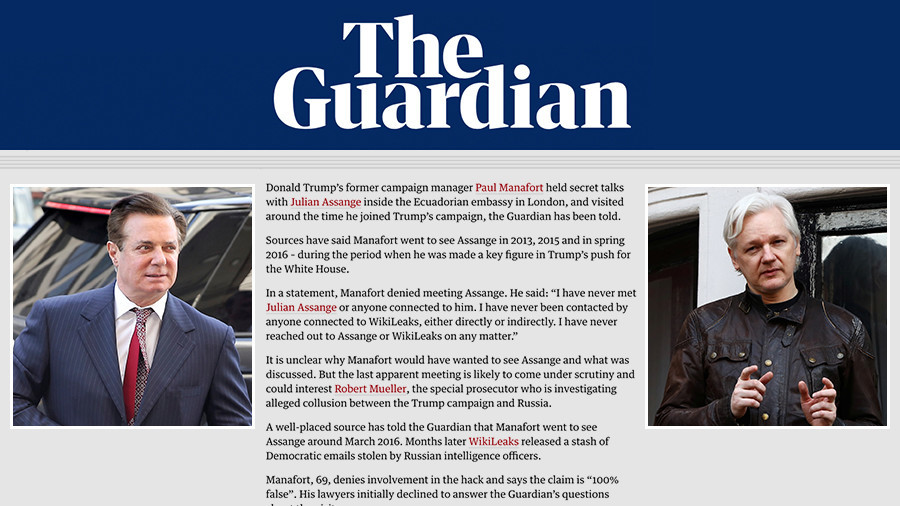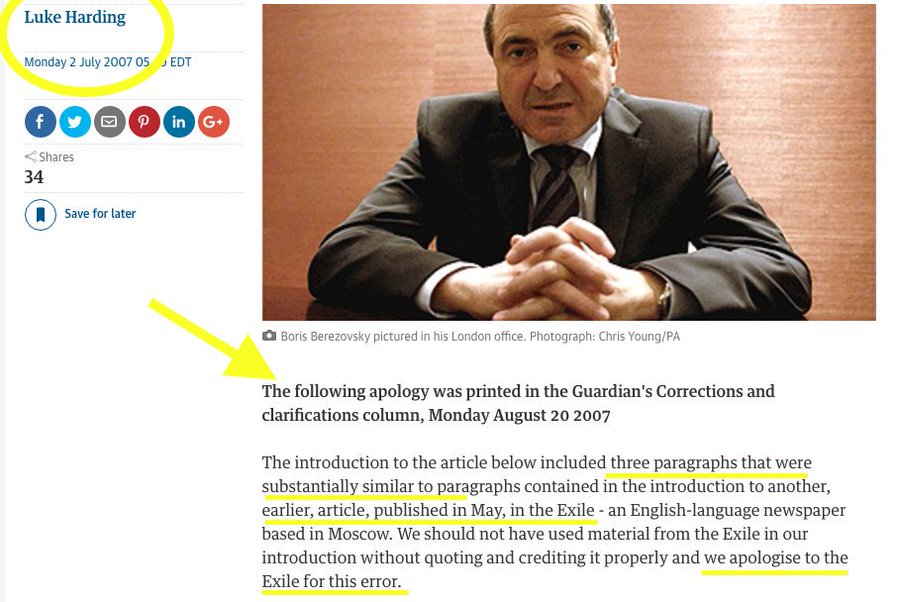Manafort and Assange deny meetings claimed in Guardian’s widely-criticized piece, threaten to sue
Published time: 28 Nov, 2018 10:06

Both protagonists of the Guardian’s ‘sources-based’ story, which claimed that Paul Manafort and Julian Assange secretly met prior to publication of leaked DNC emails, are threatening to sue the newspaper for libel.
On Tuesday, The Guardian ran a story which alleged that Manafort, the disgraced chairman of the Donald Trump campaign, had gone to London, three times over four years, to meet in secret with the founder and editor of anti-secrecy group WikiLeaks, who is stranded in the Ecuadorian Embassy.
The author of the story, Luke Harding, bases his claim on “sources” and a document “written by Ecuador’s Senain intelligence agency and seen by the Guardian”, which the newspaper didn’t publish.
ALSO ON RT.COMWikiLeaks betting ‘$1mn & editor’s head’ against Guardian claims that Manafort met Assange
Harding states that the story may be of interest to special prosecutor Robert Mueller, who is charged with investigating the alleged connection between the Trump campaign and the Russian government. He also gives an extensive background on why proponents of the ‘Russiagate’ theory were so hopeful that Manafort’s plea deal with Mueller could produce the smoking gun evidence to ruin the US president.
“This story is totally false and deliberately libelous,” Manafort said in a statement. “I have never met Julian Assange or anyone connected to him. I have never been contacted by anyone connected to Wikileaks, either directly or indirectly. I have never reached out to Assange or Wikileaks on any matter. We are considering all legal options against the Guardian who proceeded with this story even after being notified by my representatives that it was false.”
Similar remarks came from WikiLeaks, which called the core claim of the story false even before its publication. It is also promoting a GoFundMe campaign to support a libel case by Assange.
Meanwhile, many journalists and commentators took issue with the story, criticizing its author and the newspaper for failing to meet professional standards, and post-publication edits seemingly meant to distance The Guardian from the claims.


















0 Comments:
Post a Comment
Subscribe to Post Comments [Atom]
<< Home